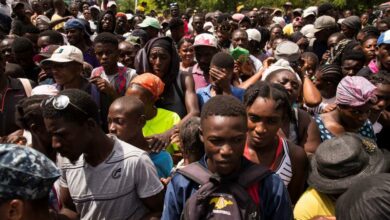One month on, public demands justice for Mexico City metro disaster

By Pedro Pablo Cortes
Mexico City, Jun 3 (EFE).- Thursday marked one month since Mexico City’s metro disaster, which killed 26 people and injured close to 100, as victims and residents demanded justice and denounced a lack of accountability and progress in the case.
The outrage is tangible around the area of the accident in the neighborhood of Tláhuac, in the east of Mexico City, where memorials built by the neighbors have turned into protests against impunity.
“There are practically no explanations. My feeling about this situation is impotence, it is sadness, that the government ignores you,” said Yazmín Suárez, who lives 15 minutes from Tezonco station, where the tragedy occurred.
On the night of May 3, a structural beam on the Line 12 overpass between Olivos and Tezonco stations collapsed, leaving cars of passengers hanging in a V shape.
The event also shook politics before Sunday’s mid-term election over potential responsibility of ruling party figures, such as Mexico City Mayor Claudia Sheinbaum and Chancellor Marcelo Ebrard, who promoted the work when he ruled the capital (2006-2012).
Questioned by journalists, President Andrés Manuel López Obrador promised on Thursday that the investigation would cover Ebrard and other high-up officials, but asked to wait for the expert opinion that the Mexico City administration commissioned, due after the elections.
“We are going to wait for the opinion to be obtained. And to make things clear, in our government, corruption is not allowed, nor impunity,” he said.
Faced with inaction of the authorities, residents of Tláhuac have organized to demonstrate and denounce the alleged responsible officials before the Ministry of Public Function, the National Human Rights Commission and the Attorney General’s Office.
The residents have questioned why the director of the Collective Transport System, Florencia Serranía, has not resigned.
“There are still no expert reports, there are still no alleged perpetrators arrested, and the victims are already buried,” said Omero Araiza, who represents a group of those affected.
“It is justice for victims, punishment for the guilty, total demolition of Line 12. Because from its origins, since its construction, it has flaws in the design, it has structural damage. (The entire line) was supposed to be built underground,” added Araiza.
Before the accident, about 220,000 people used this metro line every day. The work was inaugurated in October 2012 by the then head of the capital’s government and current chancellor, Ebrard, who attracted criticism for the final cost of the work – about 27 billion pesos ($1.7 billion dollars at the time).
Although the authorities have promised a transport solution, residents are now afraid to use Line 12. They have been reporting failures and cracks in the elevated section for years, particularly after the September 2017 earthquake.
“When they started building it, it looked bad from the beginning because all of this is problematic (…) the tragedy that happened is unforgivable for the person who actually did this work,” said resident Magnolia Téllez. EFE
ppc/tw





